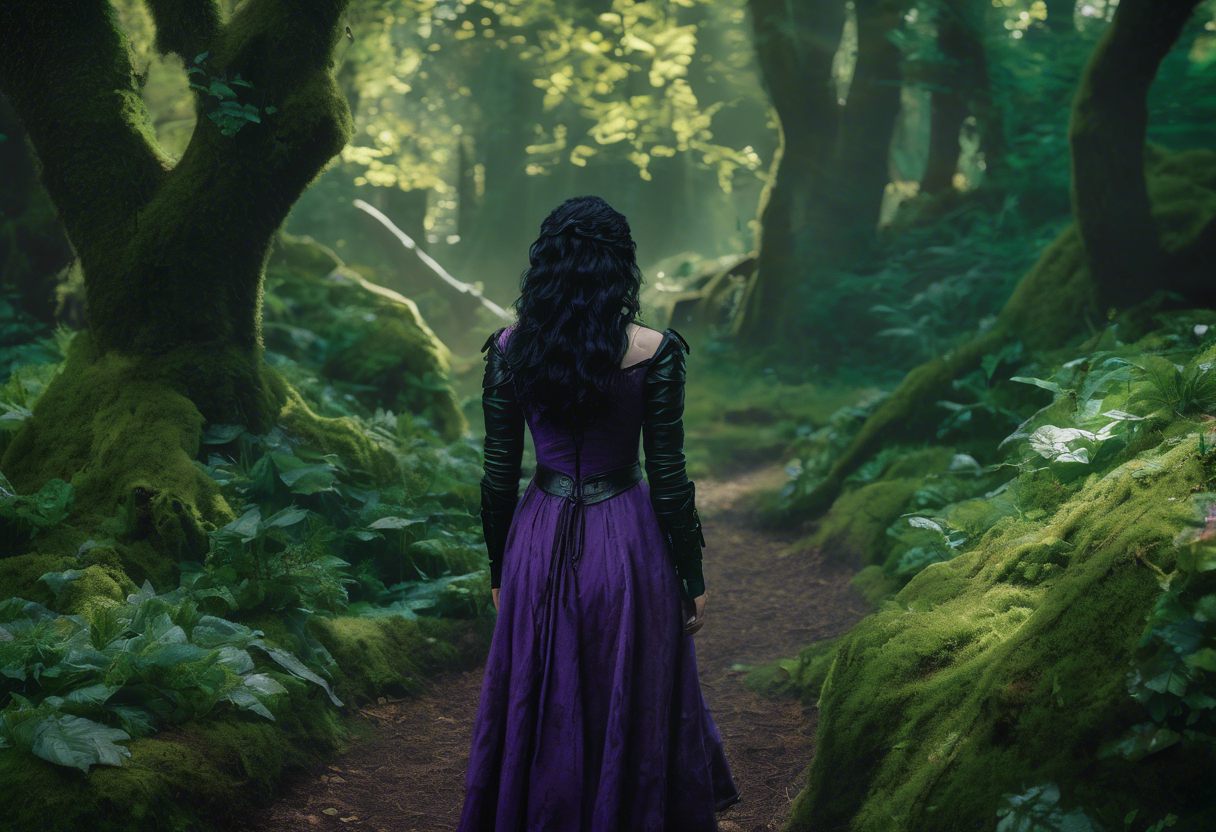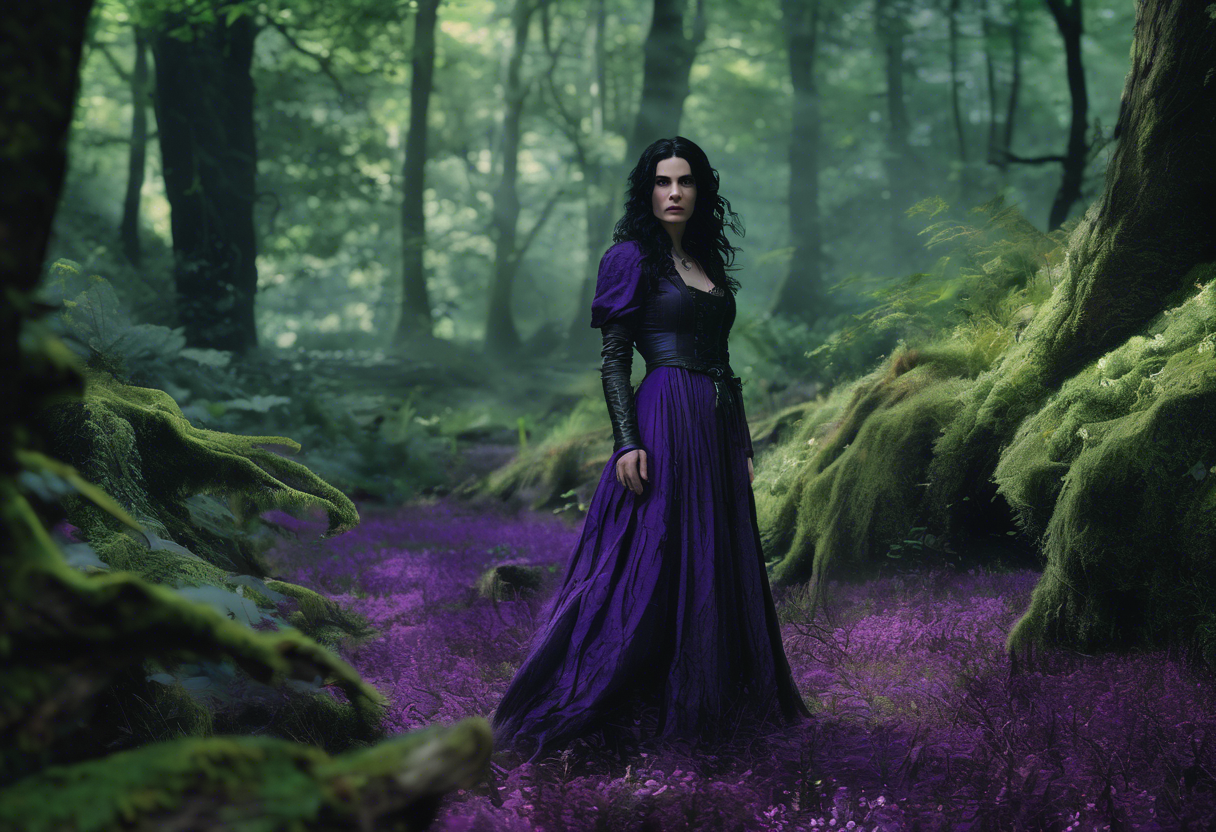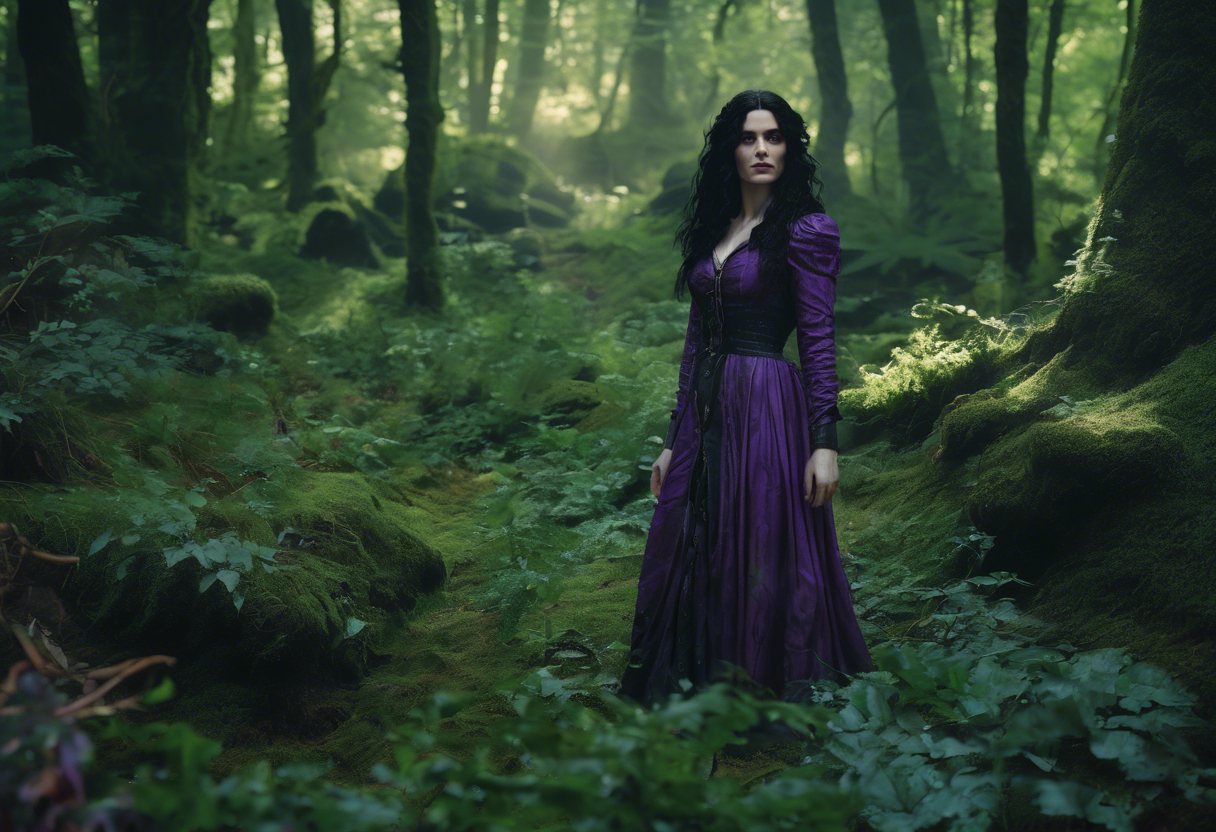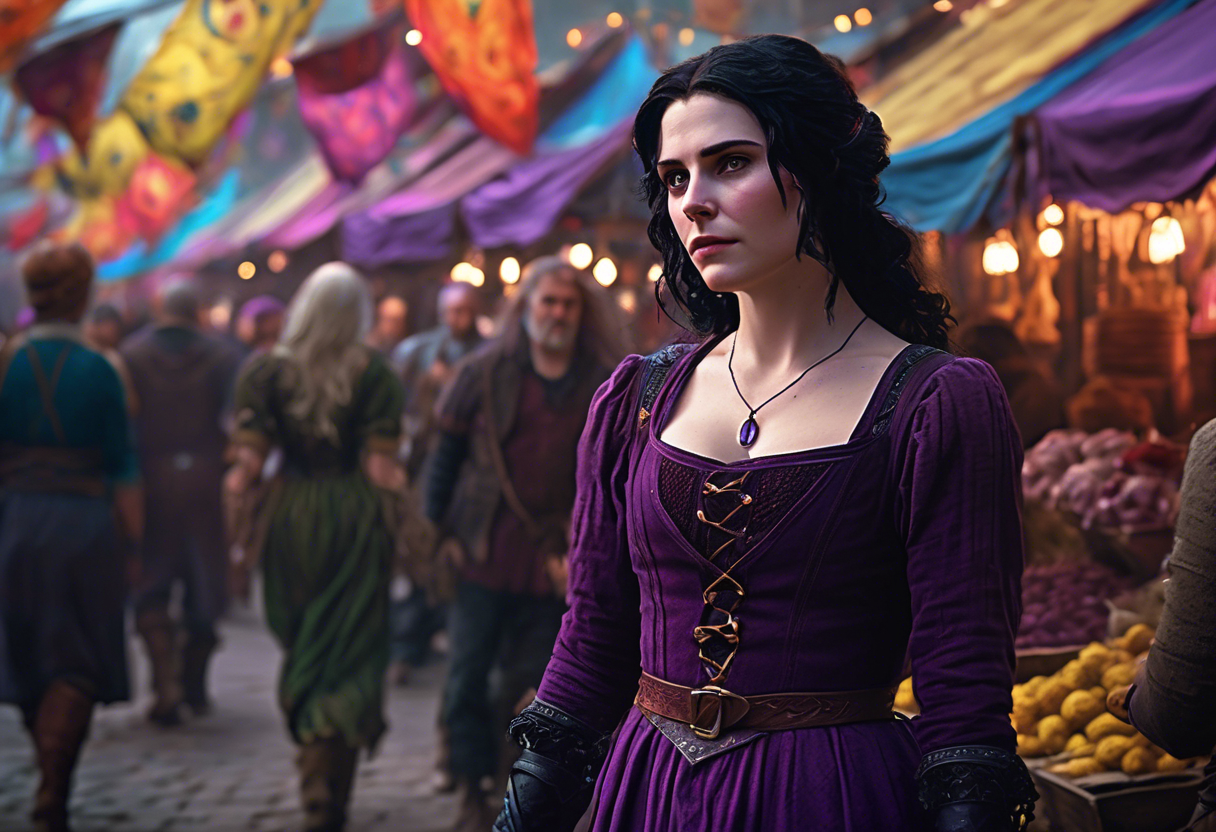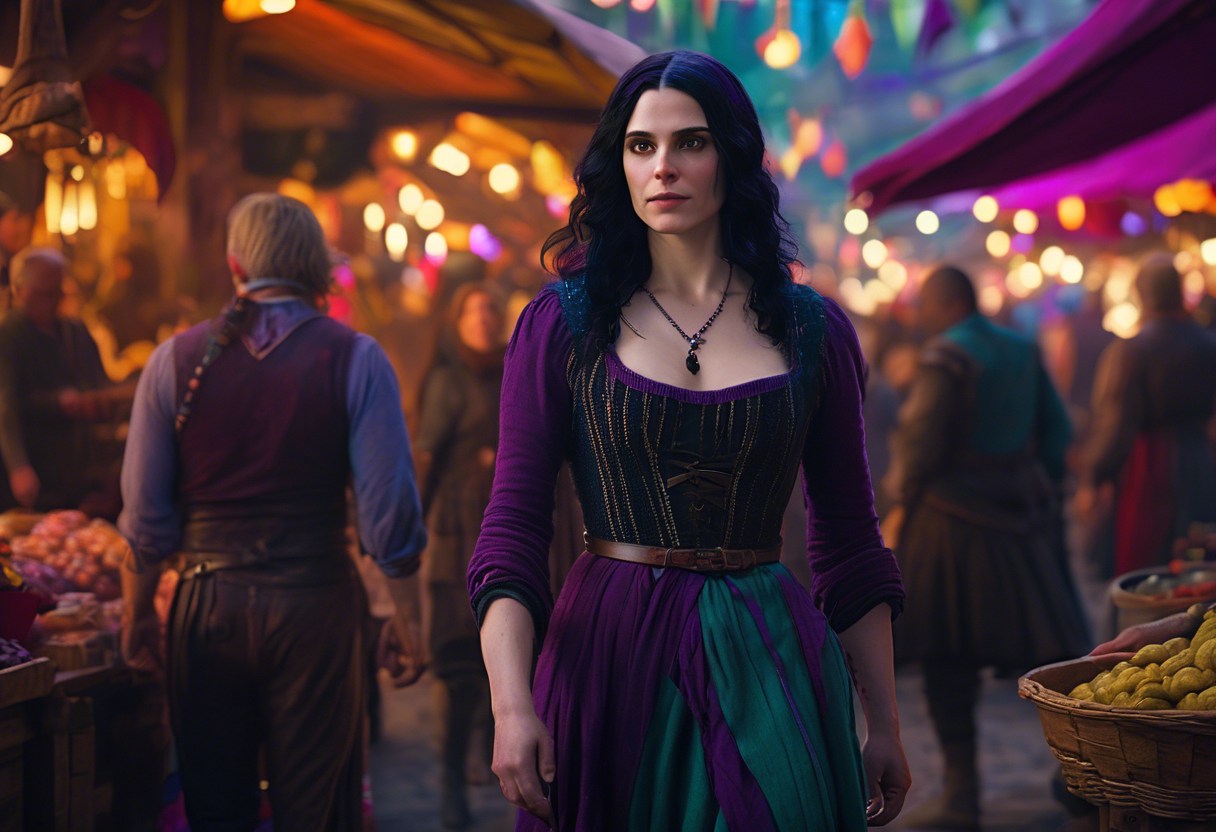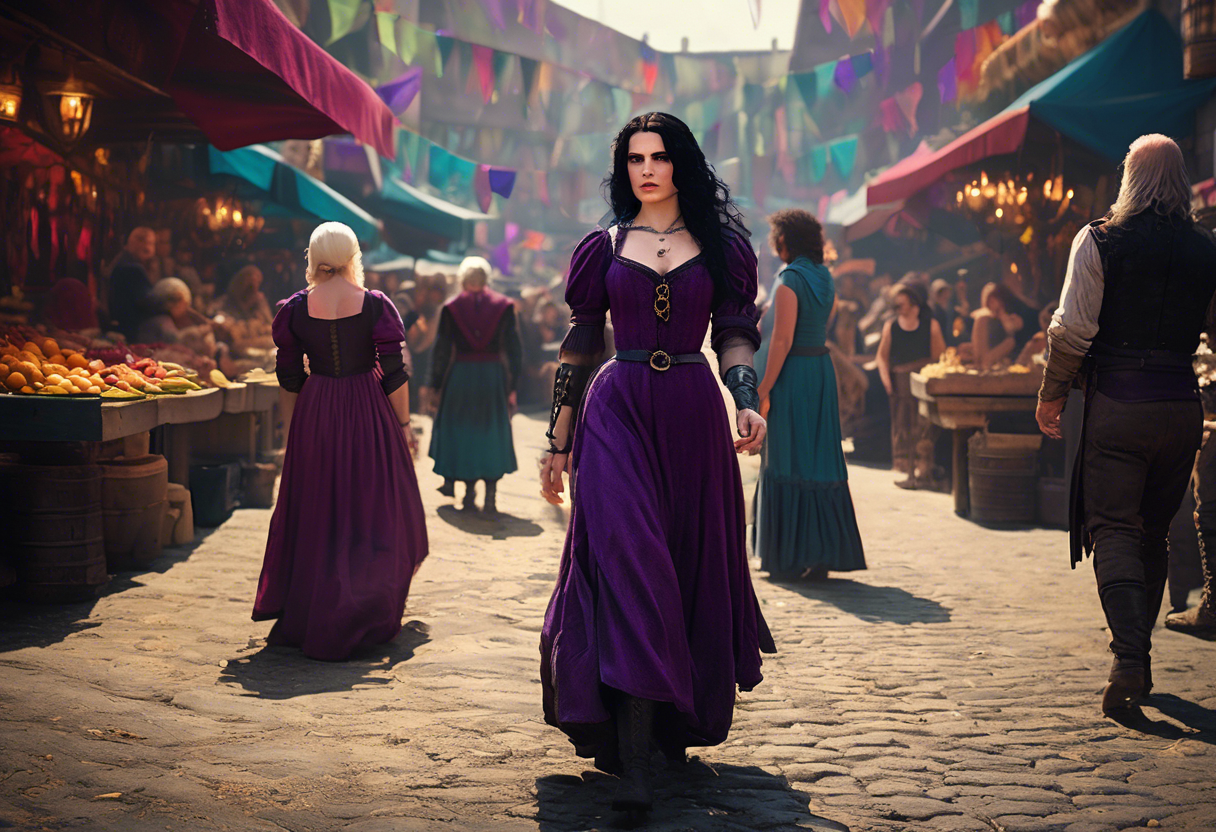Contents
Introduction
The second episode of Netflix’s "The Witcher" series, titled "Four Marks," is a pivotal installment in the show’s first season, which premiered on December 20, 2019. The episode was directed by Alex Garcia Lopez and written by Beau DeMayo, with Lauren Schmidt Hissrich serving as the showrunner and executive producer[3][5].
"Four Marks" is part of a larger narrative that adapts the popular book series by Andrzej Sapkowski, known for its rich lore, complex characters, and deep exploration of themes such as identity, power, and morality. This episode stands out within its genre for its meticulous world-building, intricate character development, and the way it tackles sensitive topics like racism and the exploitation of power.
Plot Summary
"Four Marks" delves into the interconnected storylines of the main characters: Geralt of Rivia, Yennefer, and Ciri.
Yennefer’s storyline is central to this episode. She is depicted as a bullied and neglected young girl who is sold to a magical school for girls, Aretuza, for the meager sum of four marks, a price that is less than that of a pig. This transaction is emotionally devastating for Yennefer, highlighting the themes of exploitation and the commodification of human life[2][5].
At Aretuza, Yennefer struggles to excel in her magical training under the strict supervision of the Rectoress. Despite her determination, she faces numerous challenges, including a failed attempt to lift a rock using magical energy, which further underscores her feelings of inadequacy and isolation. Yennefer also begins a clandestine relationship with Istredd, a sorcerer who becomes a significant figure in her life[2][5].
Geralt’s storyline involves a hunt for a creature referred to as a "devil," which takes a dark turn. This subplot introduces viewers to the dangers and complexities of Geralt’s profession as a Witcher, a mutated human trained to hunt monsters for a living[1][5].
Ciri, the young princess of Cintra, is on a quest for safety and seeks refuge with a group of travelers. Her journey is marked by loss and determination as she navigates a treacherous world filled with danger and uncertainty[1][2].
Themes and Symbolism
"Four Marks" is rich in themes and symbolic elements that add depth to the narrative.
One of the central themes is the exploitation of power and the commodification of human life. Yennefer’s sale for four marks and her subsequent treatment at Aretuza highlight the brutal realities of a world where power is often abused and individuals are treated as commodities[2][5].
The episode also explores the theme of identity and self-worth. Yennefer’s struggles at Aretuza and her relationship with Istredd reflect her search for validation and a sense of belonging in a world that seems determined to reject her[2][5].
Racism and prejudice are another significant theme, particularly in the context of Elf relations. The episode touches on the historical and ongoing tensions between humans and elves, adding a layer of complexity to the world-building[3].
Symbolically, the flower and rock exercise at Aretuza serves as a metaphor for the sacrifices and hardships that come with power and growth. The Rectoress’s statement, "Sometimes the best thing a flower can do for us is die," underscores the idea that growth often requires sacrifice and transformation[5].
Cultural Impact
"Four Marks" and the broader "The Witcher" series have had a significant cultural impact since their release.
The show’s adaptation of Sapkowski’s books has introduced the rich world of "The Witcher" to a new audience, contributing to a resurgence in interest in the original novels and video games. The series has also sparked numerous discussions and analyses about its themes, characters, and world-building, making it a staple in popular culture[3].
The episode’s portrayal of strong female characters, particularly Yennefer, has been praised for its feminist undertones and the exploration of female empowerment in a patriarchal society. This has resonated with audiences and contributed to the show’s cultural significance[2].
Critical Reception
"Four Marks" received mixed reviews from critics and audiences upon its release.
Critics praised the episode’s world-building and character development, particularly the deep dive into Yennefer’s backstory. However, some critics felt that the pacing was slow and that the multiple timelines could be confusing for viewers who were not familiar with the source material[3][4].
Audiences generally appreciated the episode’s emotional depth and the performances of the cast, especially Anya Chalotra as Yennefer. However, there were also complaints about the show’s non-linear storytelling and the lack of immediate action in some segments[3][4].
Despite these mixed reviews, "The Witcher" series as a whole has maintained a strong fan base and critical acclaim for its overall narrative and thematic depth.
Legacy
"Four Marks" and the first season of "The Witcher" have left a lasting impact on the world of television and fantasy storytelling.
The show’s success has paved the way for further adaptations of fantasy novels and video games, demonstrating the viability of complex, lore-rich stories in the television medium. The episode’s focus on character development and thematic exploration has set a high standard for future fantasy series[3].
The enduring relevance of "Four Marks" lies in its ability to resonate with audiences on multiple levels. It offers a compelling narrative, complex characters, and a richly detailed world that continues to inspire both creators and viewers. As part of the broader "The Witcher" series, it contributes to a larger cultural conversation about power, identity, and morality.
References
- https://www.imdb.com/title/tt8343768/
- https://autocratonasofa.com/2019/12/28/the-witcher-recap-season-1-episode-2-four-marks/
- https://www.thegamer.com/the-witcher-season-1-review-episode-2-four-marks/
- http://www.multiversitycomics.com/tv/the-witcher-four-marks/
- https://www.imdb.com/title/tt8343768/plotsummary/

